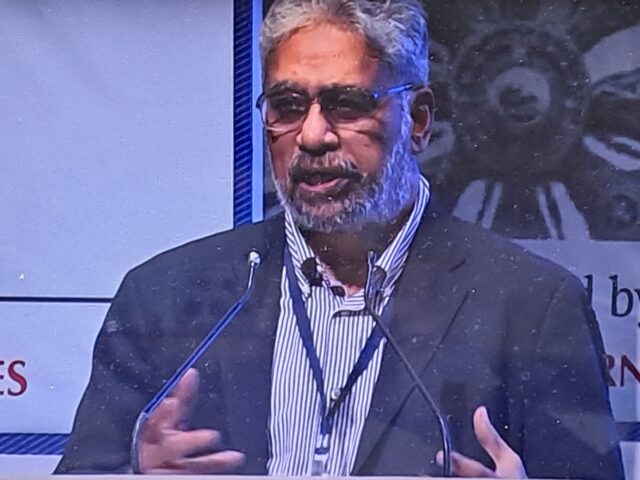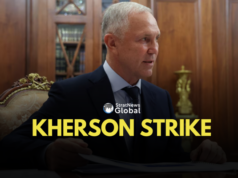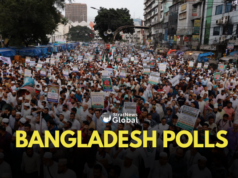PUNE: Strategic thinkers from across the country recently gathered at an international relations conference in Pune to understand and debate India’s strategic challenges in the 21st century. Unlike earlier when the country was hampered by “parlous economic conditions” India had both the economic and political might today to realise its strategic objectives. However, as former Ambassador Rajendra Abhyankar pointed out, great attention needed to be paid to the past to ensure India learnt both from its successes and failures.
“Since Independence, there have been occasions when we have used our strategic perception to improve India’s position in the world. However, there have also been occasions when we have foregone opportunities to better our position in the world. Prime Minister Jawaharlal Nehru gave the newly independent nations of Asia and Africa a viable option in the Non-Aligned Movement (NAM). This was done despite parlous economic conditions and minimal military hardware. On the other hand, despite holding all the trump cards, Prime Minister Indira Gandhi decided to give up POWs and all the territory captured in West Pakistan. It is not known whether the possibility of a settlement was even tried,” said Abhyankar.
Abhyankar stated that such a misreading of India’s strategic options could be even less afforded given the rise in the country’s political and economic clout. Pointing to the recently held G20 summit in New Delhi he said, “India today has a heightened economic and political status. We are in a position where we can use our political and economic assets to rise further in the world. Economically, India has become the fastest growing nation in 2023 among the G20 grouping. Politically, the hosting of the G20 summit has brought India’s increased influence in the world. It is here that we must take a long-term strategic view on what issues merit our deep consideration and whether we take a populist or longer view towards dealing with them.”
Speaking later, Professor C Raja Mohan outlined four issues that were of key importance to India today, especially in the context of a rising China. These included territoriality, spheres of influence, connectivity and the maritime domain. Focussing first on the issue of territoriality, Professor Rajamohan stated that India’s approach to territory stood in stark contrast to Communist China which cleaned up territory around it with the result that the “PRC today has one of the largest territories modern China has ever controlled.”
“The territorial structures that we have are going to come under continuous pressure from Chinese power whether it is in the economic domain, political domain or connectivity. Academic discourse has not really paid attention to the emergence of modern, territorial India and the problems that it faces so we need to put a lot more focus on our borderlands, the nature of our political system that we have, the nature of our citizenship there, the nature of relationship as the neighbouring relations get destabilised as can be seen in the ongoing events in Myanmar.”
Coming to the second key issue, Raja Mohan pointed out that unlike other nations India has not focussed on restoring its sphere of influence. “If you look at the Russia-Ukraine conflict today you will find that the conflict hinges around Russia seeking to restore its sphere of influence while Ukraine does not want to be a part of it. Coming to India, India’s sphere of influence in the subcontinent is under great stress from our Chinese friends. It hurts our ability to be able to influence the outcomes in our neighbourhood and to control the outcomes in the economic and political domain.”
Raja Mohan added that to counter the Chinese influence deep thought needed to be paid not just to Chinese practices but India’s historical links with its neighbours. “Today, China comes to our neighbours and says that it wants an equal relationship with them while India wants a special relationship. It adds that China does not want to interfere in their internal affairs, unlike India. How should India counter this? India has deep societal links and security interlinkages with the neighbourhood so it cannot be a passive observer of events here. The question then arises, how do we operationalise ‘Neighbourhood First’ where there is a stronger player.”
The other key issue for India was of connectivity, specially in the maritime domain. Looking to the past Raja Mohan stated, “Former ambassador K.M. Panikkar stated in his book that India would be the successor state to the British Raj in exercising hegemony over the Indian Ocean. Instead, India made choices of an inward economic orientation which suggested that it was neither interested in connectivity nor trade. There was an ‘economic partition’ which resulted in a single economic space deeply connected in the Indian Ocean becoming the least integrated region in the world.” He added, “The Indian Ocean did not figure in the thinking of Independent India. Till Prime Minister Modi’s focus on SAGAR, I did not find any reference in any speech as to India’s role in the Indian Ocean.”
The solution was then to focus on external powers. As Raja Mohan pointed out, “There has been a resistance of thought by India to the Chinese challenge in the Indian Ocean. We took 15 years to sign the LEMOA agreement with the US. Our not doing so has helped China. India needs to realise that not all external powers are not the same. You face a certain challenge from China, you build a coalition with other powers in order to deal with potentially hostile outcomes in the Indian Ocean. Our geopolitics must be threat-based, they must realise where the problem comes from and how you deal with them.”
Traveller, bibliophile and wordsmith with a yen for international relations. A journalist and budding author of short fiction, life is a daily struggle to uncover the latest breaking story while attempting to be Hemingway in the self-same time. Focussed especially on Europe and West Asia, discussing Brexit, the Iran crisis and all matters related is a passion that endures to this day. Believes firmly that life without the written word is a life best not lived. That’s me, Ashwin Ahmad.





